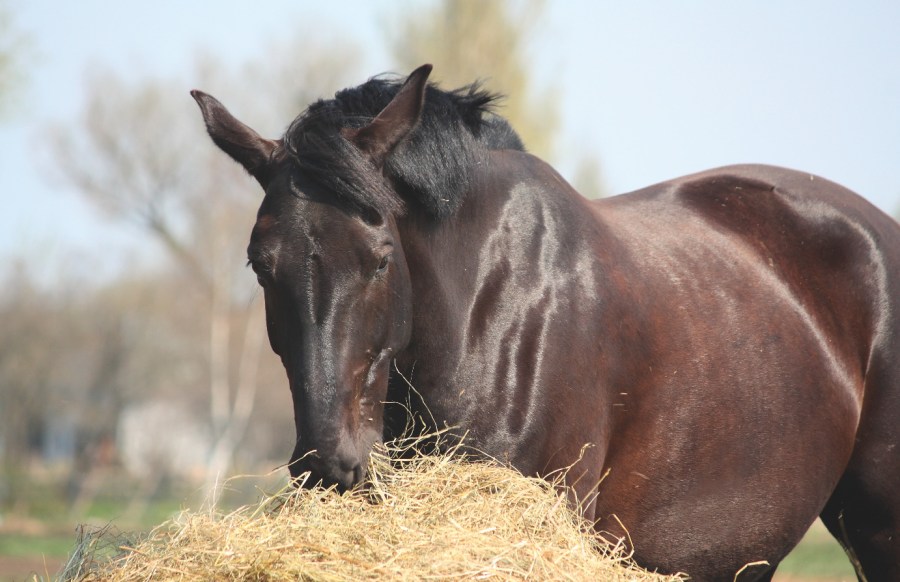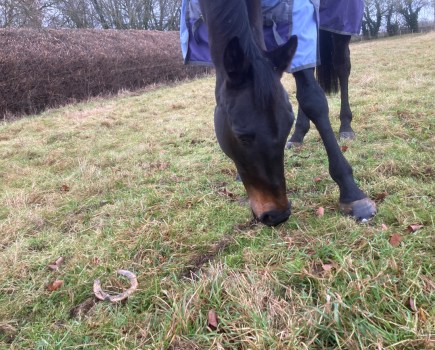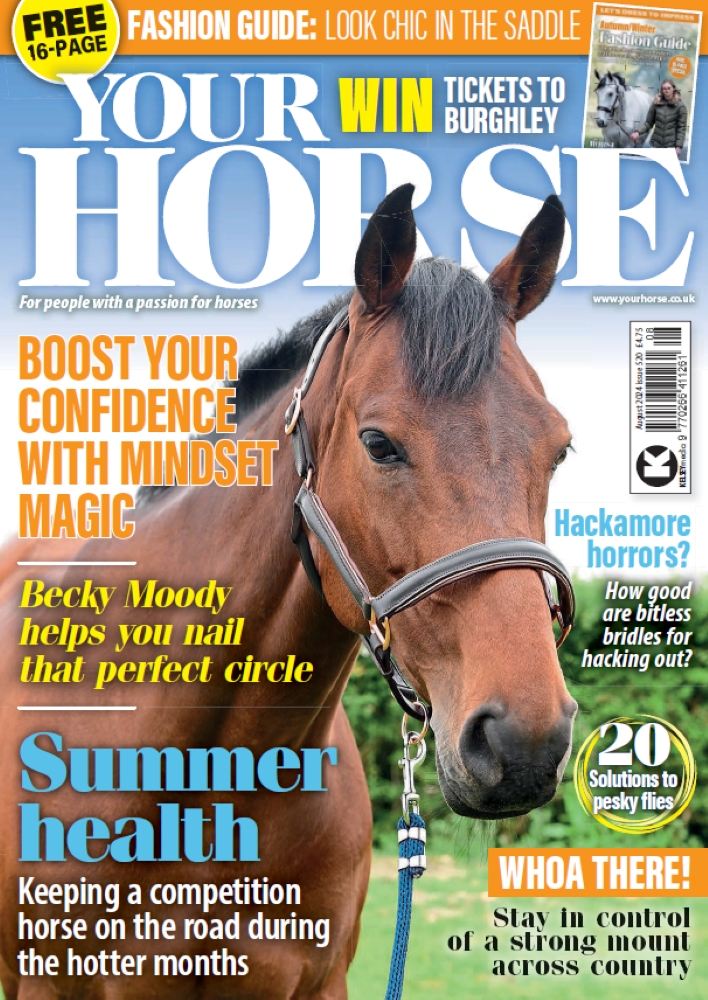Horses stabled for long periods can become bored and frustrated, especially when their exercise or interactions with other horses are limited. Knowing when your horse might not be able to exhibit normal social behaviours as much as they would like, such as when in the stable or on limited grazing, is key to being creative with how you enrich their environment to help improve their wellbeing.
Ruth Court, horse welfare manager at Blue Cross, shares some simple ideas on how to do this.
To help satisfy your horse’s instinct to forage, try the following:
- Wrap non-poisonous plants, such as willow, around the bars of the stable and hang them from the ceiling so that your horse can nibble at will.
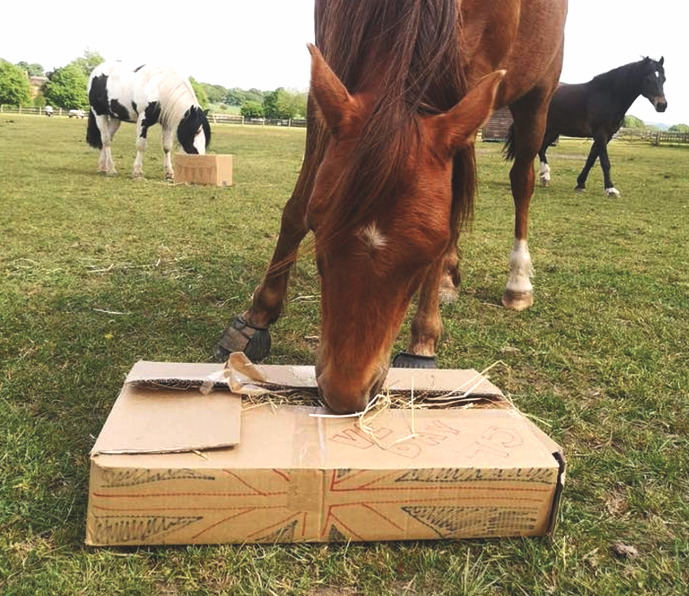
A forage box. Credit: Blue Cross
- Hide fruit and veg in the stable. This is a great way to keep horses busy and introduce them to a variety of flavours and textures, although remember that some might be high in sugars, so may not be suitable for those on a restricted diet.
- Provide treat balls with small amounts of chopped up feed inside to encourage horses to use their bodies and their brains.
- Make a forage box using an old cardboard box (but make sure there are no metal staples). Fill it with hay and tasty treats that your horse can rummage for, or hide sliced apple and carrot in your horse’s haynet.
- Feed herbs, like mint and parsley, or plants such as dandelions and stinging nettles, which are fragrant and tasty. They can be placed inside or outside.
Luckily, there are lots of ways to get horses to use their minds and senses to help reduce boredom and frustration…
- In their field, try planting areas of different herbs for them to smell.
- Find safe objects they can scratch on or a branch they can chew on. Different surfaces and heights, and safe new objects, can be great for them to explore and learn about.
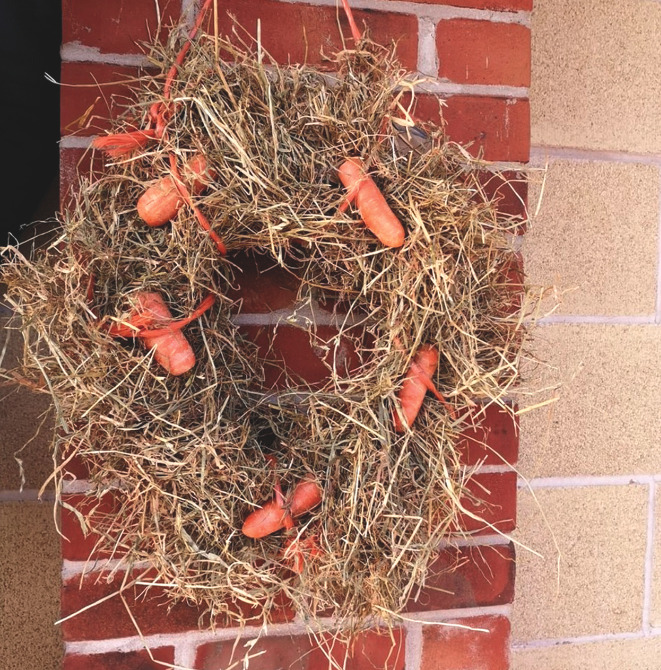
A carrot net. Credit: Blue Cross
- An old brush or broom head safely and securely tied in the stable or a scratching mat can help horses to relieve any unreachable itches. They also help reduce stress — most horses love a good scratch!
- Grooming is important for health and bonding, and helps to satisfy one of your horse’s natural needs. Test out your different grooming brushes on him and see which he likes best. Find the spots that gets his top lip curling — this helps to build your bond and releases feel good hormones for you both.
- Playing music or reading to your horse can provide interesting new sounds for them, and is an opportunity for companionship and bonding. Studies have shown that classical music can even lower horses’ heart rates.
Main photo credit: Shutterstock
About the expert: Ruth Court is Horse Welfare Manager at Blue Cross. She has a BSc (Hons) degree in equine management and holds the BHSII. Ruth is also a director of the National Equine Welfare Council.

